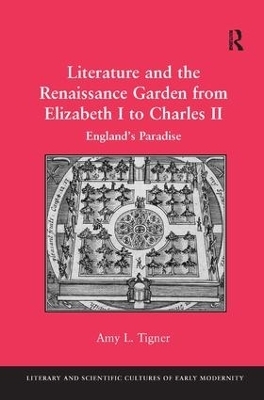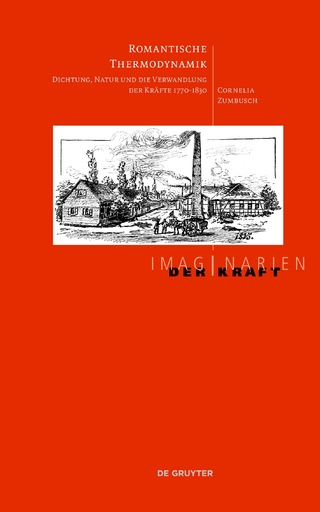
Literature and the Renaissance Garden from Elizabeth I to Charles II
England’s Paradise
Seiten
2012
Routledge (Verlag)
978-1-4094-3674-4 (ISBN)
Routledge (Verlag)
978-1-4094-3674-4 (ISBN)
Spanning the period from Elizabeth I's reign to Charles II's restoration, this title argues the garden is a primary site evincing a progressive narrative of change, a narrative that looks to the Edenic as obtainable ideal in court politics, economic prosperity, and national identity in early modern England.
Spanning the period from Elizabeth I's reign to Charles II's restoration, this study argues the garden is a primary site evincing a progressive narrative of change, a narrative that looks to the Edenic as obtainable ideal in court politics, economic prosperity, and national identity in early modern England. In the first part of the study, Amy L. Tigner traces the conceptual forms that the paradise imaginary takes in works by Gascoigne, Spenser, and Shakespeare, all of whom depict the garden as a space in which to imagine the national body of England and the gendered body of the monarch. In the concluding chapters, she discusses the function of gardens in the literary works by Jonson, an anonymous masque playwright, and Milton, the herbals of John Gerard and John Parkinson, and the tract writing of Ralph Austen, Lawrence Beal, and Walter Blithe. In these texts, the paradise imaginary is less about the body politic of the monarch and more about colonial pursuits and pressing environmental issues. As Tigner identifies, during this period literary representations of gardens become potent discursive models that both inspire constructions of their aesthetic principles and reflect innovations in horticulture and garden technology. Further, the development of the botanical garden ushers in a new world of science and exploration. With the importation of a new world of plants, the garden emerges as a locus of scientific study: hybridization, medical investigation, and the proliferation of new ornamentals and aliments. In this way, the garden functions as a means to understand and possess the rapidly expanding globe.
Spanning the period from Elizabeth I's reign to Charles II's restoration, this study argues the garden is a primary site evincing a progressive narrative of change, a narrative that looks to the Edenic as obtainable ideal in court politics, economic prosperity, and national identity in early modern England. In the first part of the study, Amy L. Tigner traces the conceptual forms that the paradise imaginary takes in works by Gascoigne, Spenser, and Shakespeare, all of whom depict the garden as a space in which to imagine the national body of England and the gendered body of the monarch. In the concluding chapters, she discusses the function of gardens in the literary works by Jonson, an anonymous masque playwright, and Milton, the herbals of John Gerard and John Parkinson, and the tract writing of Ralph Austen, Lawrence Beal, and Walter Blithe. In these texts, the paradise imaginary is less about the body politic of the monarch and more about colonial pursuits and pressing environmental issues. As Tigner identifies, during this period literary representations of gardens become potent discursive models that both inspire constructions of their aesthetic principles and reflect innovations in horticulture and garden technology. Further, the development of the botanical garden ushers in a new world of science and exploration. With the importation of a new world of plants, the garden emerges as a locus of scientific study: hybridization, medical investigation, and the proliferation of new ornamentals and aliments. In this way, the garden functions as a means to understand and possess the rapidly expanding globe.
Amy L. Tigner is Assistant Professor of English at the University of Texas, Arlington and is the founding editor of Early Modern Studies Journal (formerly Early English Studies).
Introduction; The political garden: horticultural courtship; The untended garden: Shakespeare and the anti-paradise; The corporeal garden: masquerading in paradise; The colonial garden: collecting paradise; The revolutionary garden: Milton and early modern environmental thinking; Bibliography; Index.
| Erscheint lt. Verlag | 28.5.2012 |
|---|---|
| Verlagsort | London |
| Sprache | englisch |
| Maße | 156 x 234 mm |
| Gewicht | 690 g |
| Themenwelt | Geisteswissenschaften ► Sprach- / Literaturwissenschaft ► Anglistik / Amerikanistik |
| Geisteswissenschaften ► Sprach- / Literaturwissenschaft ► Literaturwissenschaft | |
| ISBN-10 | 1-4094-3674-8 / 1409436748 |
| ISBN-13 | 978-1-4094-3674-4 / 9781409436744 |
| Zustand | Neuware |
| Haben Sie eine Frage zum Produkt? |
Mehr entdecken
aus dem Bereich
aus dem Bereich
Dichtung, Natur und die Verwandlung der Kräfte 1770-1830
Buch | Hardcover (2023)
De Gruyter (Verlag)
59,00 €


